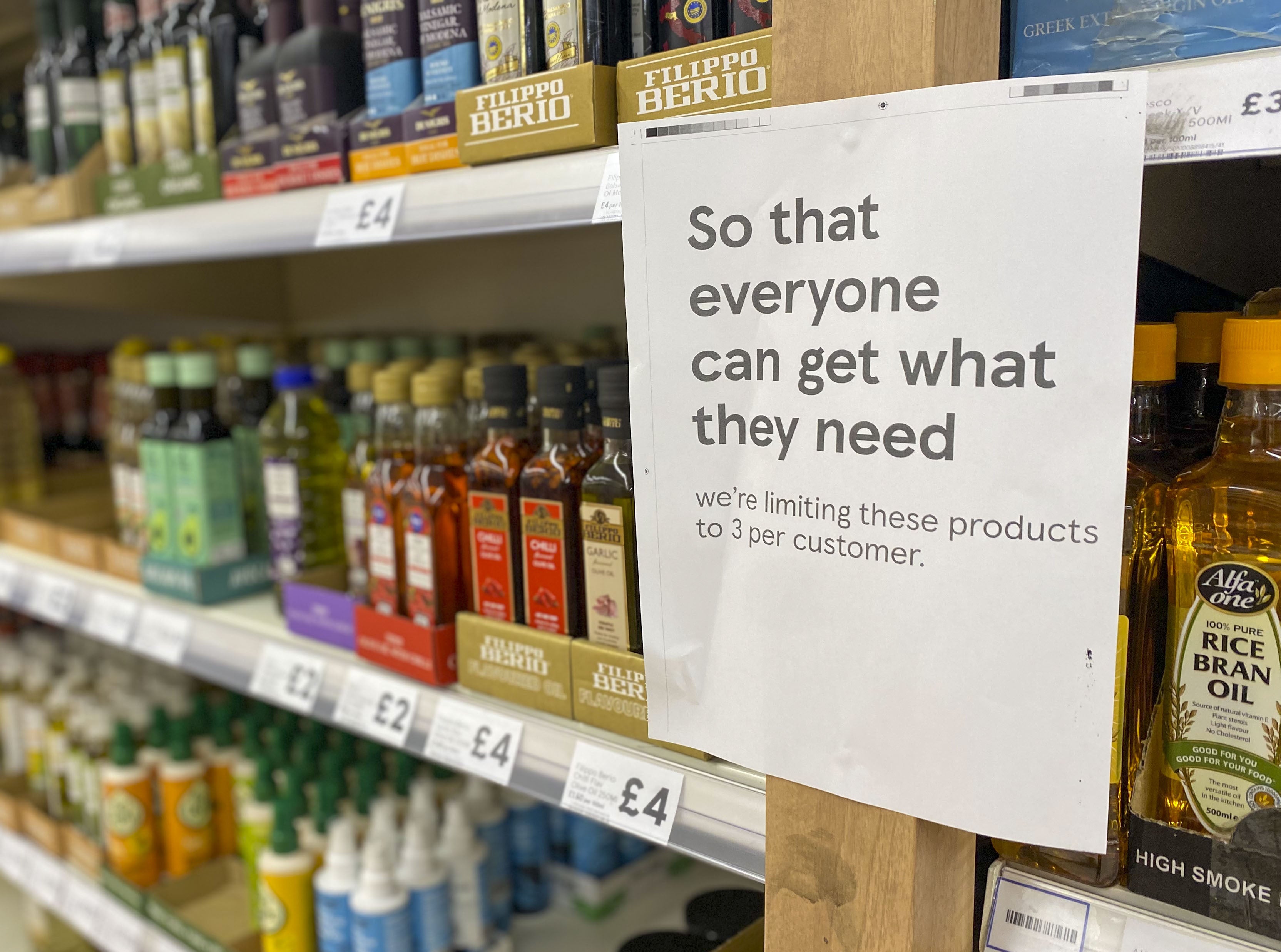Household food bills rise £271 in a year as prices soar
Average prices rose 5.9% this year, the fastest rate since December 2011, supermarket data shows

Your support helps us to tell the story
From reproductive rights to climate change to Big Tech, The Independent is on the ground when the story is developing. Whether it's investigating the financials of Elon Musk's pro-Trump PAC or producing our latest documentary, 'The A Word', which shines a light on the American women fighting for reproductive rights, we know how important it is to parse out the facts from the messaging.
At such a critical moment in US history, we need reporters on the ground. Your donation allows us to keep sending journalists to speak to both sides of the story.
The Independent is trusted by Americans across the entire political spectrum. And unlike many other quality news outlets, we choose not to lock Americans out of our reporting and analysis with paywalls. We believe quality journalism should be available to everyone, paid for by those who can afford it.
Your support makes all the difference.The average annual grocery bill is has jumped £271 in a year as food prices soar at the fastest pace in 1 years, the latest supermarket sales figures show.
Average prices were 5.9 per cent higher in the three months to April compared to the same period a year earlier, according to data company Kantar, which compiled the figures.
Shoppers are being hit with higher prices as suppliers pass on soaring energy, fuel and transport costs.
Kantar warned further price rises will be hard to avoid because many of the items affected are everyday essentials.
It found shoppers were increasingly favouring getting the best value on basic items while shunning promotions. Households are dealing with a 54 per cent jump in the energy price cap as well as an increase to national insurance contributions and falling real wages.
The latest data will put renewed pressure on big supermarket chains to cut prices after Tesco reported profts had tripled last year.
The search for value helped Aldi and Lidl, which saw their sales incerase by more than any other major grocery chains.
Between them the two companies welcomed more than one million extra shoppers over the past 12 weeks. The two discounters now account for 15.4 per cent of the market – up from just 5.5 per cent a decade ago.
Rivals have responded with a renewed focus on value ranges, with Asda launching its Just Essentials line, Morrisons announcing it is cutting the price of many everyday goods, and Tesco boosting savings for loyal customers through its Clubcard discounts.
The figures also showed households are returning to pre-pandemic shopping habits with online sales falling almost 15 per cent compared to last year.
“While online shopping is definitely here to stay, it’s less of a necessity now," said Kantar's Fraser McKevitt. "Shopper confidence about heading out and about and getting back to store has gone up and half a million fewer households bought over the internet compared with last year.”
There was also some evidence of stockpiling goods that have been particularly impacted by Russia's war in Ukraine.
Last weekend several supermarkets introduced restrictions on cooking oil purchases as concerned consumers filled up their cupboards.
The combination of rising prices and increased demand saw the cooking oil market grow by 17 per cent over April. Sunflower oil and vegetable oil grew even faster, up by 27 per cent and 40 per cent respectively.
Russia and Ukraine supply around 60 per cent of global sunflower oil exports.
Overall supermarket sales were down 4.1 per cent over the last month, however, as people returned to offices, restaurants and pubs.
Sales are also, for the first time since the pandemic started, 0.6% below where they were two years ago. This period now takes into account the early days of the first lockdown.
Join our commenting forum
Join thought-provoking conversations, follow other Independent readers and see their replies
Comments